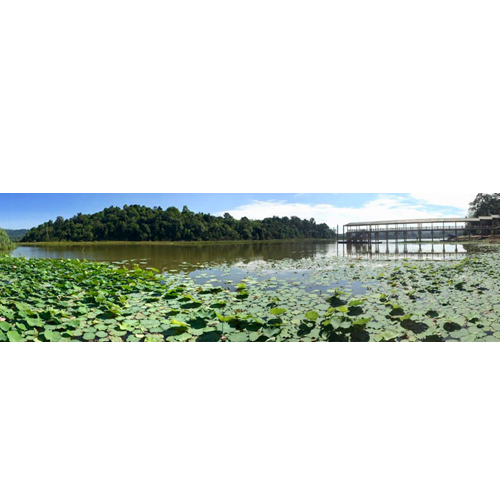Environmental change, monsoon variability and human impact in Southeast Asia

We seek an excellent student to investigate environmental change, monsoon variability, and human impact in a Southeast Asian tropical lake.
Southeast Asia is a critical zone for the global hydrological cycle. The region is influenced by the Asian monsoon system, which controls water availability across this densely populated region. In Peninsular Malaysia, flooding often occurs during the wet season and extreme rainfall events have become more frequent in recent decades. Future increases in precipitation extremes are predicted to be very likely. The area is also undergoing rapid environmental change due to climate change and human impact, therefore extended baseline data are required to resolve past monsoon and flood activity.
This project will investigate sediment cores from Tasik Chini, a rare flood-pulse wetland and UNESCO Biosphere Reserve. The hydrology of the lake is dependent on monsoon rains, and it is highly sensitive to hydroclimate fluctuations with its sediments likely to contain a detailed record of climatic change of great regional significance.
The study aims to develop a better understanding of the nature and extent of flooding in a tropical wetland ecosystem and assess the influence of anthropogenic pressures, in order to improve predictions of future changes in monsoonal rainfall, and associated flood risk, in response to climate variations under different boundary conditions. The project would suit a student with interests in adopting a multi-proxy approach to tackle palaeoenvironmental research questions. Applicants should be comfortable with carrying out fieldwork, working with an international research team, and be competent in a laboratory environment.
The student will be based at the British Geological Survey with Dr Jack Lacey and Professor Melanie Leng, and at the School of Geography in the University of Nottingham with Dr Suzanne McGowan. Training will be given in geochemical, isotope and palaeolimnological techniques.
Applicants should hold a minimum of a UK Honours degree at 2:1 level or equivalent in a relevant subject such as Environmental Science, Geography, Biology, Geosciences or related disciplines
For further information please contact Dr Jack Lacey.
Links:
- BGS Stable Isotope Facility: https://www.bgs.ac.uk/sciencefacilities/laboratories/geochemistry/sif/home.html
- Centre for Environmental Geochemistry: http://environmentalgeochemistry.org/home.html
- University of Nottingham School of Geography: https://www.nottingham.ac.uk/geography/
